Featured in
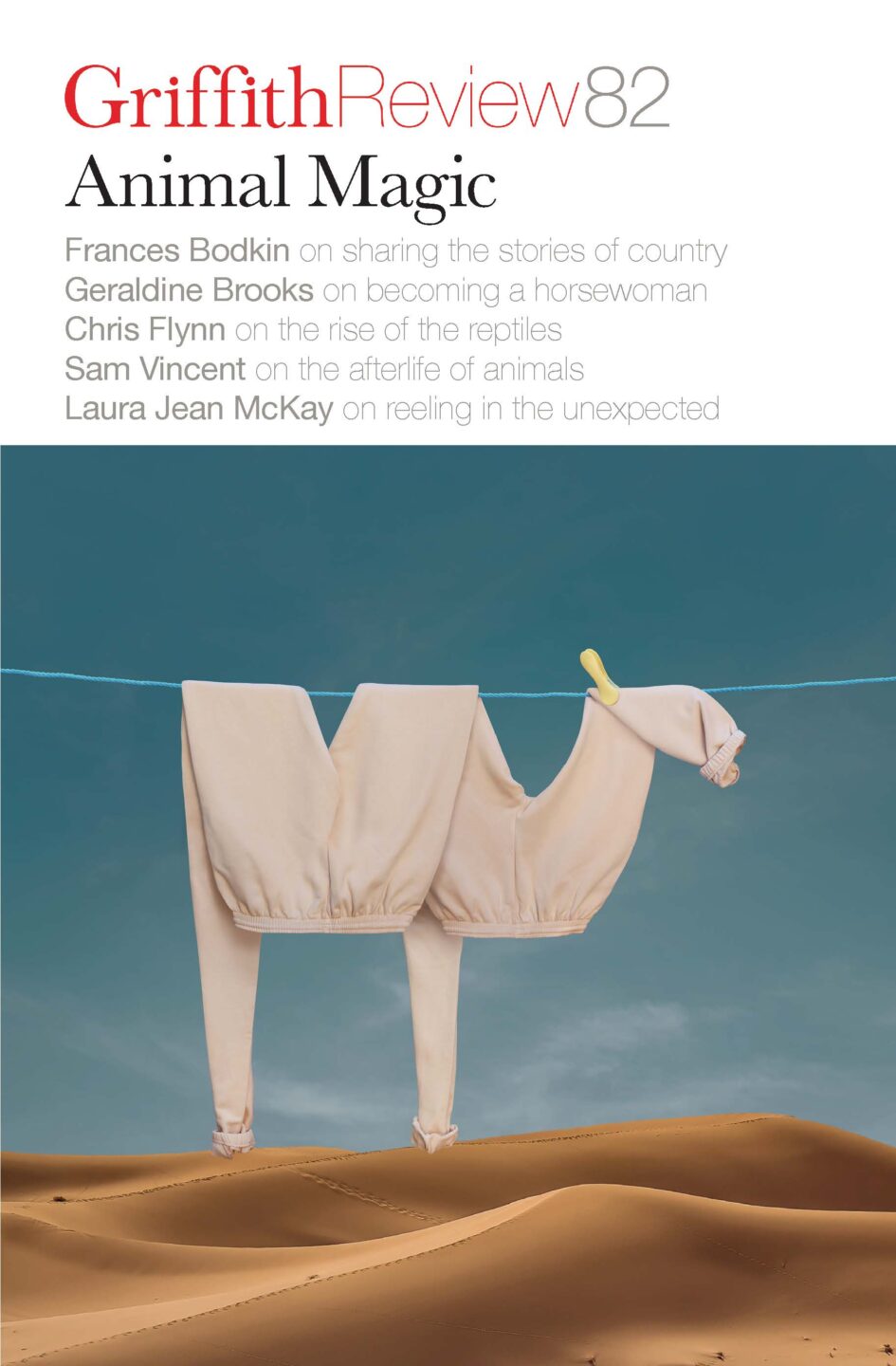
- Published 20231107
- ISBN: 978-1-922212-89-4
- Extent: 208pp
- Paperback, ePub, PDF, Kindle compatible

‘CHILDREN, DID YOU ever try to define the difference between an animal and a vegetable?’ asks the freethinker and writer Elmina Slenker in her 1887 almanac for ‘little folk’. ‘It is easy to tell a cow from a tree, or a man from a potato. But when you take some of the lower forms of life and compare them, you will not find so much difference.’ Slenker gives her young readers the example of the plasmodial slime mould Fuligo septica, a bright-yellow unicellular organism born from a spore, which throbs and creeps over rotting tree trunks and leaf litter in its search for nutrients. Dividing itself, fusing with compatible amoeba it encounters and stretching upwards of two feet in length, the plasmodium will eventually fruit and burst into spores that start the cycle again. Slenker describes this organism as a ‘fungus plant’, which, ‘when placed under certain conditions, will change into an animal’ – a calmly scientific description of a folkloric wonder.
Slime mould (which is actually neither animal nor vegetable, nor even mould nor fungus, but an Amoebozoa) is one of the murky epistemological border dwellers that broke the two-kingdom system for classifying living things. In Western culture, writes theorist Jeffrey Jerome Cohen, these fissures in the classificatory ‘order of things’ have habitually spawned monsters. The compound living-dead flesh of Frankenstein’s creature; the wolf-rat-humanoid form of Dracula; the bivalve-reptilian Xenomorph – these monsters are ‘disturbing hybrids whose externally incoherent bodies resist attempts to include them in any systematic structuration’.
Likewise, fungi and fungi-like organisms have always been hard to pin down. Their mysterious workings seemed astral or supernatural: Plutarch suggested that mushrooms were created by thundershowers vitalising the ground with fire; global folk traditions associated them with fairies, devilry and reincarnated spirits. Their ability to thrive in darkness led some to speculate that fungi followed the motions of the moon.
In the early nineteenth century, fungi and slime moulds were commonly placed in the plant kingdom, but as the specialist discipline of mycology developed during the Victorian era, and as species such as Fuligo septica were puzzled over, fungi’s uncanniness only came into greater focus. This was a plant, it seemed, that vibrated with animal energy. And so fungi’s place in a binary system of categorisation – animal or vegetable – became vexed. In the 1860s, several naturalists proposed a third kingdom of life, but it didn’t catch on until the following century.
The biologist TH Huxley had a more radical take. In 1868, he raised the example of Fuligo septica and its animalistic powers in his lecture ‘On the Physical Basis of Life’, not only concluding that ‘plants and animals are not separable’, but that the entire system of taxonomic distinctiveness obscures the commonality of organisms at either end of the great chain of being. Humans and slime mould, he argued, are both protoplasmic organisms, shaped and fired from the same clay: ‘Protoplasm, simple or nucleated, is the formal basis of all life… Thus it becomes clear that all living powers are cognate, and that all living forms are fundamentally of one character.’ Slime mould is propelled by drives and stimuli like us, just with differing degrees of elaboration. We are sophisticated slime.
Scrambling the scientific assumptions of the time, fungi and fungi-like organisms also gained new cultural and symbolic meanings. They began to sprout in the claustrophobic houses of gothic fiction and the swamps of horror; in the centre of the Earth and on the distant moons of science fiction; in utopian tracts, revolutionary and anti-revolutionary literature; and in the parasitic infections of the post-apocalyptic. Fungi were metaphors that fruited in many genres, mirroring human preoccupations with communal life and our tangled place in ecologies and economies. Creeping, co-operating, intertwining, fungi continue to feed our cultural dreaming and political unconscious.
IN TRUTH, THE human-drawn line between plant and animal has never been especially solid. Carl Linnaeus, a natural historian and taxonomist with an obsessive eye for the distinctions and likenesses between things, argued in Systema Naturae (1735) that while plants ‘grow and live’, animals ‘grow, live, and have feeling’. Plants, personified as the goddess Flora, are quietly feminised in Linnaeus’ taxonomy: they ‘clothe the surface with verdure’, ‘breathe by quivering leaves’ and ‘celebrate their nuptials in a genial metamorphosis’. They are decorative and exotic background figures. Masculinised animals, conversely, are ‘impelled to action by hunger, congeneric affections, and pain’; they are protagonists, stalking through the world with ‘sensation and the power of locomotion’, ‘preying on other animals and vegetables’. The bodily vegetable and the thinking animal are arranged in ascending order, with man, ‘the governor and subjugator of all other beings’, topmost. Even Linnaeus, though, had to insert an asterisk into his monumental division of life into plant and animal kingdoms, making room for slippery, category-defying ‘zoophytes’ such as coral, which appeared to combine elements of both.
Linnaeus allocated fungi to the plant kingdom, but he recognised them to be unruly specimens. He was aware of the way fungal spores seem to transform into mobile, animal-like balls when placed in water, before tangling into a dense weft and birthing new fungi. Perhaps more troublingly, fungi have a habit of living in parasitic or mutualistic relationships with other species, something that Linnaeus’ system of distinct taxa struggled to capture. So he relegated fungi to the genus Chaos; in his speeches and writings, he compared fungi to a disorderly mob, and to ‘thieving and voracious beggars’.
Fungi are more actively insubordinate in a poem from the 1780s attributed to the writer and botanist Anna Seward, discovered on the endpapers of Joseph Banks’ copy of Linnaeus’ A System of Vegetables. In the poem, the spirit of Flora laments that Linnaeus’s system had not yet been implemented in Britain, meaning that plants were not aware of their proper place in the order of things. Nature is therefore in riot:
Here rank & high titles, says she have no merit
And my Weeds are brought up in a leveling spirit
You vagabond Fungus what else cou’d provoke
To tread on the toes of his highness the oak
Feeding on the divine body of the oak – a tree that sheltered Charles II from the revolutionary Roundheads, becoming a symbol of the restored monarchy – the fungus is here a fellow traveller of Oliver Cromwell.
Revolutionary mushrooms became a repeated trope. In Charlotte Smith’s Jacobin novel Desmond (1792), a French count (who happily kills all the birds on his property rather than let his peasants eat them) describes bourgeois revolutionaries as ‘a mushroom, a fungus’ on the national body: they are ugly, fast-sprouting ‘upstarts’ in comparison to the slow, noble progress of the arboreal aristocracy. Only Linnaean order could save the great oaks from these unclassifiable, unrestrainable monsters.
Though already objects of anxiety, fungi were not yet part of the iconography of the gothic. ‘Mouldering’, however, was a favourite adjective of the gothic pioneer Ann Radcliffe: the titular castle from The Mysteries of Udolpho (1794) has decaying furniture and ‘mouldering walls’. Mouldering in its general sense means crumbling and rotting, and the appearance of fungal mould was seen as a symptom and not a cause of this mouldering process. By the early nineteenth century, botanists and engineers had found traces of the Serpula lacrymans fungus in rotting timber and noted the fungal forms of mildews, rusts and smuts growing on diseased plants, but these were not widely assumed to trigger decay. Rather, fungi were imagined as grim reapers, coming to collect the already dead. Some internal distemper in the timber or plant, like ‘morbid sap’, was suggested as a possible source of decomposition.
The mysterious cause of wet rot and dry rot became a particular British obsession, feeding paranoia about the rotting foundations of its marshy maritime capital and the soundness of the oaken hulls of its war fleet. Fungi slowly emerged as the main suspect. In 1804, Joseph Banks argued that a parasitic fungus was responsible for diseased corn, but it was the blighted potatoes of the Great Famine that finally galvanised the view that (as English mycologist Miles Joseph Berkeley argued in 1845) fungi and fungi-like organisms do not simply ‘prey on decayed or decaying matter’ but actively ‘produce decay’, determinedly mouldering and consuming the crops and dank real estate of Britain and Ireland.
CULTURALLY AND SCIENTIFICALLY, fungi were being reimagined in the nineteenth century as creaturely – as an animal in the walls, an entity that undoes our confident possession of the world. While Charles Darwin didn’t have much to say about fungi, his late research into plants further muddied the distinction between vegetable and animal, and raised the provocative idea that plants had a kind of ‘brain’ deep in their roots. Darwin casually dropped that bombshell into the final sentence of The Power of Movement in Plants (1880), co-written with his son Francis: ‘It is hardly an exaggeration to say that the tip of the radicle…acts like the brain of one of the lower animals; the brain being seated within the anterior end of the body, receiving impressions from the sense-organs, and directing the several movements.’ Plants, if we follow this logic, not only have mobility, but sensibility: they sense the world in complex ways and respond to those sense impressions. Darwin saw this in his own collection of exotics. ‘My hobby-horse at present is Tendrils,’ he wrote to his eldest son, William; ‘they are more sensitive to a touch than your finger; & wonderfully crafty & sagacious.’ Darwin called one of his carnivorous plants, affectionately, ‘a most sagacious animal’.
These new conceptions of animate rot and plant sensibility find an echo in ‘The Fall of the House of Usher’ (1839) by Edgar Allan Poe. Poe’s vitalist universe swarms with creaturely life on all scales, living intimately with us while being essentially indifferent to our fate. As the clammy mansion at the centre of Poe’s tale starts to crumble, Roderick Usher, last son of the Usher line, starts musing about ‘the sentience of all vegetable things’. The mansion’s bricks and vegetation, Usher says, are together animated by malign intelligence: ‘The conditions of the sentience had been here, he imagined, fulfilled in the method of collocation of these stones – in the order of their arrangement, as well as in that of the many fungi which overspread them, and of the decayed trees which stood around.’ This fungal sentience had ‘moulded the destinies of his family’ for centuries. In Charles Dickens’ Great Expectations (1861), another text about rotten inheritances, we are introduced to our hero’s mouldering London apartment, in which the smells of ‘dry rot and wet rot and all the silent rots that rot in neglected roof and cellar’ are so rankly corporeal that they appear to moan and speak. In Poe and Dickens, the fungus is an active agent of dissolution, all the more terrifying for being faceless, encrypted and subterranean.
Gothic stories about homes overcome by mould and mushrooms, in which the home feels like it is possessed by malevolent others, express a visceral alienation from everyday domestic life. In Charlotte Perkins Gilman’s ‘The Yellow Wallpaper’ (1892), a young woman is taken to a ‘colonial mansion, a hereditary estate’ to recover from what we would now call postnatal depression. She is prescribed the rest cure and confined by her husband to a locked and barred nursery – marked by deep gouges in the floor and torn and smeared wallpaper, which might have been caused by children playing or by some unknown madwoman in the attic. The room is not literally infected by fungi, but there’s a fungal design in its yellow wallpaper (‘an interminable string of toadstools, budding and sprouting in endless convolutions’), which soon seems to come alive: ‘All those strangled heads and bulbous eyes and waddling fungus growths just shriek with derision!’ Its yellowness crawls off the surface in the form of a yellow smell and a stain on the skin. The wallpaper’s endless sprouting of identical toadstools signals the woman’s entrapment in biological reproduction as well as in middle-class domesticity. As the critic Agnes Malinowska argues, it evokes the young woman’s horror of becoming a mere fruiting body in service to her husband’s familial line. Neither the house nor her body belong to her.
TODAY, THE FUNGAL gothic expresses alienation from the house as property. Our relationship with the housing market is easily imagined in Gothic terms. A mortgage, after all, is literally translated as a ‘dead pledge’, and from this ‘surprising etymology’, writes literary scholar Annie McClanahan, ‘we might exhume any number of meaningful lessons: about the terrifying nature of debt; the strange ontology of property; the uncanniness of ownership; the implicit threat at the heart of the credit contract’. In an era when houses are an asset class sustained by abstract financial instruments, homes, whether bought or rented, can feel intimately familiar but not quite our own; their role as a repository of memories abuts their role as a repository of (someone else’s) capital.
Fears of losing control of property are expressed through fungal infestations in Netflix’s adaptation of The Haunting of Hill House (2018), in which a father is trying to renovate and flip a mansion that is supernaturally cursed with black mould, and in the film I Am the Pretty Thing That Lives in the House (2016), about a nurse living in the estate of a reclusive writer, in which mould colonises walls and dreams, and spectral forces are the true landlords. ‘I have heard myself say that a house with a death in it can never again be bought or sold by the living,’ the nurse intones at the opening of the film. ‘It can only be borrowed from the ghosts that have stayed behind.’
But this theme is most starkly felt in real-life stories of mould-infested rental properties. After years of rain bombs and flash flooding, nearly half of private rentals and nearly 60 per cent of public rentals have a mould problem in New South Wales, according to the latest Australian Housing Conditions Dataset. In Victoria, the peak body for tenants has been overwhelmed with requests for mould support. This real-world crisis finds expression in fungal horror stories in Reddit communities such as r/Sydney, with subject headings like ‘Is this place inhabitable?’ Responses are often along the lines of ‘RUN’. If you’re strong stomached, you can click through to photos of ink caps or elf ears fruiting in sodden carpets or cupboards, skirting boards bubbling with wet rot or portals of black mould in plasterboard or ceiling tiles, often accompanied by stories of dead-eyed landlords who might evict you if you complain too much. (These landlords bring to mind Rathbone Harris from HP Lovecraft’s The Shunned House [1924], who rents out a New England colonial residence with no concern for the transdimensional phosphorescent fungus sporing in the cellar, nor ‘the deaths and illnesses which caused so many changes of tenants’, even when ‘the town council ordered him to fumigate the place’.)
Renters’ stories have some common tropes: people talk about the smell of meat and fermentation, about uncannily rapid sporing and sprouting, about headaches and dizzy spells, paranoia and shame. They use a gothicised language of imprisonment and invasion. ‘I have taken to calling it the “Death Trap”,’ one renter told Tenants Victoria. ‘I feel so stuck here.’ These are spaces possessed by alien agencies: the fungus, the landlord, the deranged global climate system. A fungal visitation makes visible the renter’s haunted relation to property and power.
BUT FUNGI DON’T just consume and rot. Their communality – their tendency to form symbiotic relationships with other species – also began to come into focus during the nineteenth century, and it continues to complicate our perception of fungi today.
Despite advances in molecular studies, there is much that we still don’t understand about how fungi share nutrients, or how they bind – and perhaps even communicate – with other species through furtive underground signals. Liberal capitalist culture, too, has struggled to apprehend fungal communality. As humans drift further from communal social structures, fungal networks have either become an object of Romantic longing, or (predictably) of horror. From the invasive and omniscient mushroom spores in Jeff VanderMeer’s Finch (2009), to the all-consuming human-fungi hybrids in Silvia Moreno-Garcia’s Mexican Gothic (2020), to the mycorrhizal zombie swarm in HBO’s The Last of Us (2023), hybridised fungal communities are imagined as a mindless mass in most corners of popular culture. Fungi’s utopian message about the interdependence of all life is buried under piles of zombie corpses. ‘It seems to be easier for us today to imagine the thoroughgoing deterioration of the earth and of nature than the breakdown of late capitalism,’ writes the cultural theorist Fredric Jameson; likewise, it seems easier for us to imagine a fungal post-apocalypse than to imagine a post-capitalist world of symbiotic nurture.
The fungal hybridity that immediately grabbed the public’s attention in the nineteenth century was also parasitic and necrotrophic. Species of parasitic Cordyceps, like the caterpillar fungus, often taken via imperial networks from medical and tattooing cultures in Asia and Australasia, caused minor sensations in the Anglophone press as they became more widely publicised. In 1856, Dickens’ weekly magazine, Household Words, reported breathlessly on ‘carnivorous vegetables’ that enact ‘slaughter’ on insect larvae in Van Diemen’s Land and China, drinking the insects like vampires and converting them into mummies. William Hope Hodgson’s ‘The Voice in the Night’ (1907) took this fascination with Cordyceps and initiated a whole horror subgenre of parasitic possession, a tradition still shuffling, zombie-like, through the culture. In Hodgson’s eerie tale, travellers are shipwrecked on an island quivering with forests of ‘grey, lichenous fungus’, which consume and transform human forms into ‘great, grey nodding sponge[s]’.
More interesting, though, was the growing awareness of mutualistic fungal relations at the end of the century. The idea of symbiosis, prompted by fungal research, opened up new ways of thinking about interspecies interaction beyond parasitism. It is credited to two German mycologists working in the 1870s: to Albert Bernhard Frank, studying truffles, who found an intimate entanglement between fungi and the roots of forest trees, which he called ‘mycorrhiza’; and Heinrich Anton de Bary, who confirmed that lichen is in fact a compound organism – a symbiotic fusion (or ‘communistic arrangement’, as philosopher Herbert Spencer described it) of fungi and algae. Far from being parasitic, mycorrhiza and lichen were engaged in mutually beneficial kinship relations. Frank found that fungi, rather than sucking the life out of the royal tree, were an ‘an inalienable part of every beech and oak’ and served as ‘an important “wet nurse” for their nutrition’. Noël Bernard, researching mycorrhizal relationships in orchids around the turn of the century, found fungi acting as virtual midwives in orchid germination.
The value of these developments as political allegories was almost immediately recognised. In his essay on ‘Ancient Experiments in Co-Operation’ (1892), HG Wells cited mycorrhizal networks and lichenous ‘co-operative unions’ in sketching an alternative to the idea that ecologies and economies are naturally founded on competition and the struggle for existence. ‘The suspicion of symbiotic unions, indeed, now affects almost the whole Vegetable Kingdom, and many animals. Here again is an entirely different thing from destructive competition between individuals; instead, we perceive their harmonious agreement and the genesis of a higher unity.’ He ends the essay by looking toward the horizon to fungal socialism: ‘there is no impossibility in science that in the future men should not coalesce into similar unified aggregates.’
There’s been a recent revival of interest in mycorrhizal symbiosis, led by biologist Merlin Sheldrake’s rhapsodic bestseller Entangled Life: How Fungi Make Our Worlds, Change Our Minds and Shape Our Futures (2020). One of the threads running through Sheldrake’s work is the human struggle not only to understand the hidden workings of fungi scientifically, but to grasp them in language. It is impossible for us to apprehend fungi beyond anthropocentric analogies, Sheldrake says, and his potted history of fungal science is also a history of failed and imperfect metaphors. One of these, now in vogue, is the TED Talks-friendly description of subterranean fungal networks as the ‘wood-wide web’ (which Sheldrake reluctantly adopts, with some caveats). First seen on the cover of Nature in 1997, the idea of the wood-wide web ultimately reduces the dark pulsions and patternings of the fungal underground to an analogy for digital capitalism, with fungi mere cables and pipelines for communication and nutrient delivery. Some have taken the metaphor further, likening the wood-wide web to a ‘biological market’ ruled by competition, commodity exchange, and supply and demand. This is a late-capitalist Cordyceps within the body of Wells’s ‘co-operative union’ – suggesting how even the most utopian corners of our imagination get colonised by the market.
IF HUMANITY’S FUTURE is an open question, then The Last of Us projects the plausible scenario that we’ll be no match for the rapidly adaptive and co-operative powers of fungi. In Relic (2020), too, humans seem outmatched by a fungus. The Australian horror film follows three generations of women who encounter a creeping black mould emerging from the crawl spaces of the matriarch’s grand Edwardian home. The mould (sculpted by the set designers using shellac, sawdust and glue) externalises the physical and mental deterioration of the elderly Edna – she herself is marked by a spreading black wound on her chest. But if Edna’s fate is sealed, the future of her granddaughter, Sam, is also cloudy. Disillusioned and rootless, she has quit working at a gallery to take shifts in a bar. Both grandmother and granddaughter are artistic, yet the chances of the younger woman in the 2020s stringing together a career in the proletarianised arts sector and buying a property even half the size of her grandmother’s seem slim. So Sam offers to move in and look after Edna, seeking to find purpose through care, and to live within her grandmother’s success in the hopes of one day inheriting it. But the inheritance turns out to be a curse.
At the same time that the forward progress of generations and the upward curve of material prosperity is throttled, the black mould in Relic signals a more existential threat to future life. ‘Black mould flourishes in decaying and ruined places of unabated moisture and heat,’ writes horror scholar Dawn Keetley, ‘and the recent proliferation of stories about black mould is no doubt driven by contemporary anxieties about the uncertain fate of humans on a warming planet.’ If mould is a symptom and symbol of a deranged climate, then Relic’s rotting house is also our rotting world. In a doubled sense, Sam has inherited a ruin, and her only option is to pull it down. But as life gets harder for Sam and future generations, we’ve created the ideal conditions for a fungal renaissance. The relic is us.
In ‘Evolution and Ethics’ (1893), TH Huxley imagined a planet emptied of humanity but pulsing with fungal and algal life. He used the image as a way of refuting the idea that survival of the fittest necessarily means survival of the most complex or intelligent:
‘Fittest’ has a connotation of ‘best’; and about ‘best’ there hangs a moral flavour. In cosmic nature, however, what is ‘fittest’ depends upon the conditions. Long since, I ventured to point out that if our hemisphere were to cool again, the survival of the fittest might bring about, in the vegetable kingdom, a population of more and more stunted and humbler and humbler organisms, until the ‘fittest’ that survived might be nothing but lichens, diatoms, and such microscopic organisms as those which give red snow its colour…
In the blasted landscape of Chernobyl, on the walls of the damaged reactor and in the highly radioactive cooling water, the fittest that survives is a radiotrophic fungus, which appears to grow larger by absorbing and metabolising ionising radiation. It’s not well understood, but it seems to use high levels of black melanin pigment to absorb and harvest radiation, in the same way that chlorophylls harvest energy from the sun. Proliferating freely, it has turned Chernobyl’s stagnant waters black. We don’t stand a chance.
Image credit: Getty Images
Share article
About the author
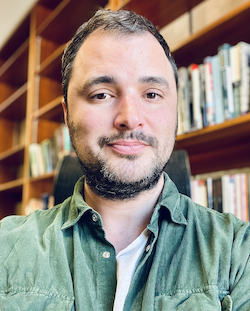
Robbie Moore
Robbie Moore is a senior lecturer in English at the University of Tasmania, where he teaches a variety of subjects, including the Victorian gothic....
More from this edition
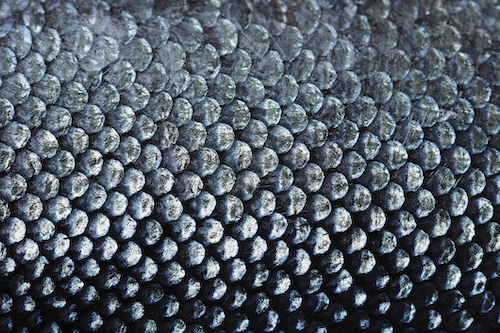
Fish
FictionHe hasn’t caught one in twelve years or more, not since just before Ritchie – Hayley’s oldest – was born. The deboning alone can take half a morning and you have to strip that tail to its cartilage very carefully because there’s a layer of green resin, bitter. In small doses it ruins the meat; poisonous if you eat too much.
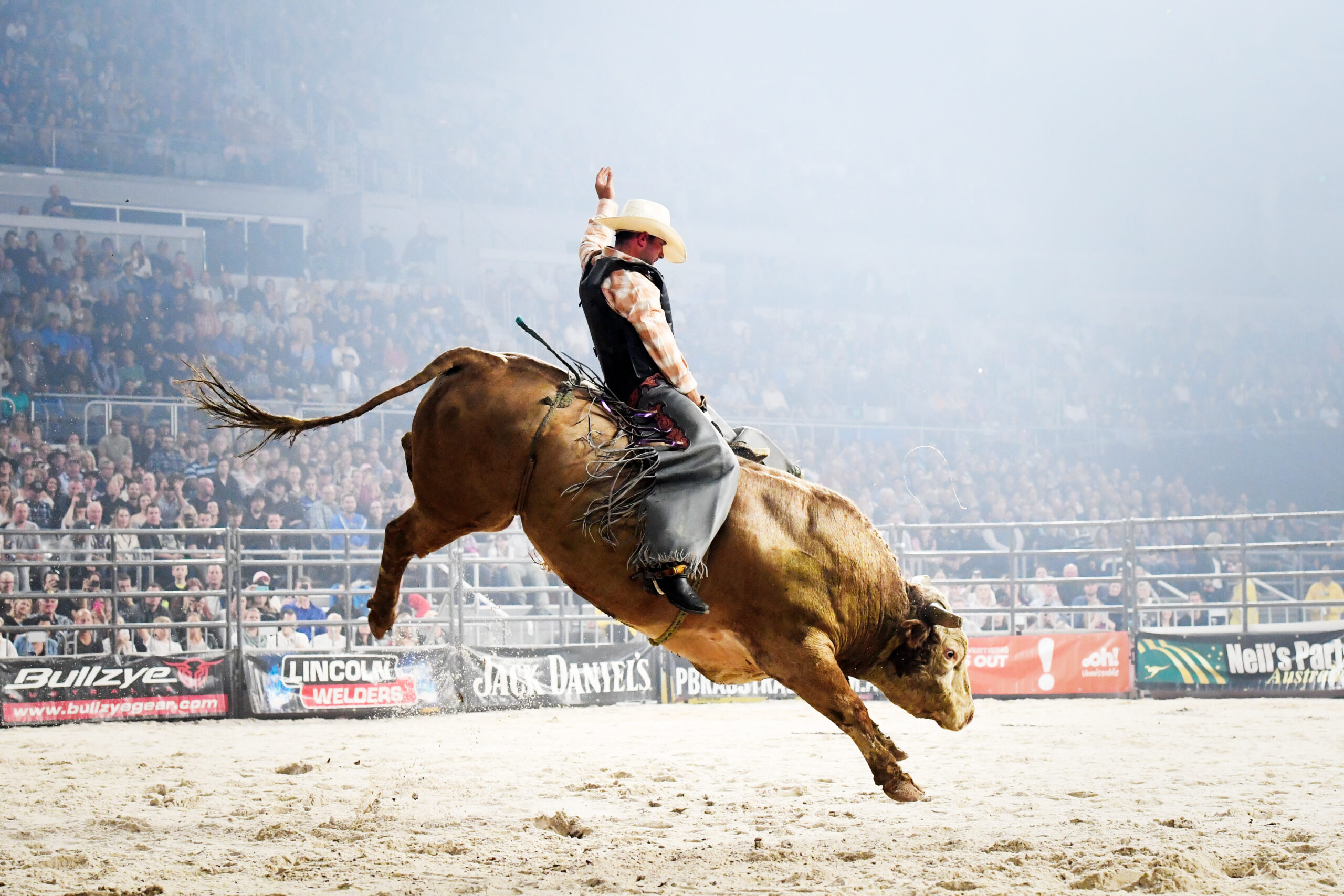
Easy rider
In ConversationMy first bull-riding job was a portrait of a young rider named Ian ‘Irish’ Molan from Cork, Ireland, for the upcoming event in Darwin that weekend. I attended the event that weekend and photographed behind the scenes and focused on Ian Molan in action. When it was the Irishman’s turn, he was thrown off the bull, who stomped on the rider’s chest repeatedly. I thought Ian was going to die. The bull was relentless.
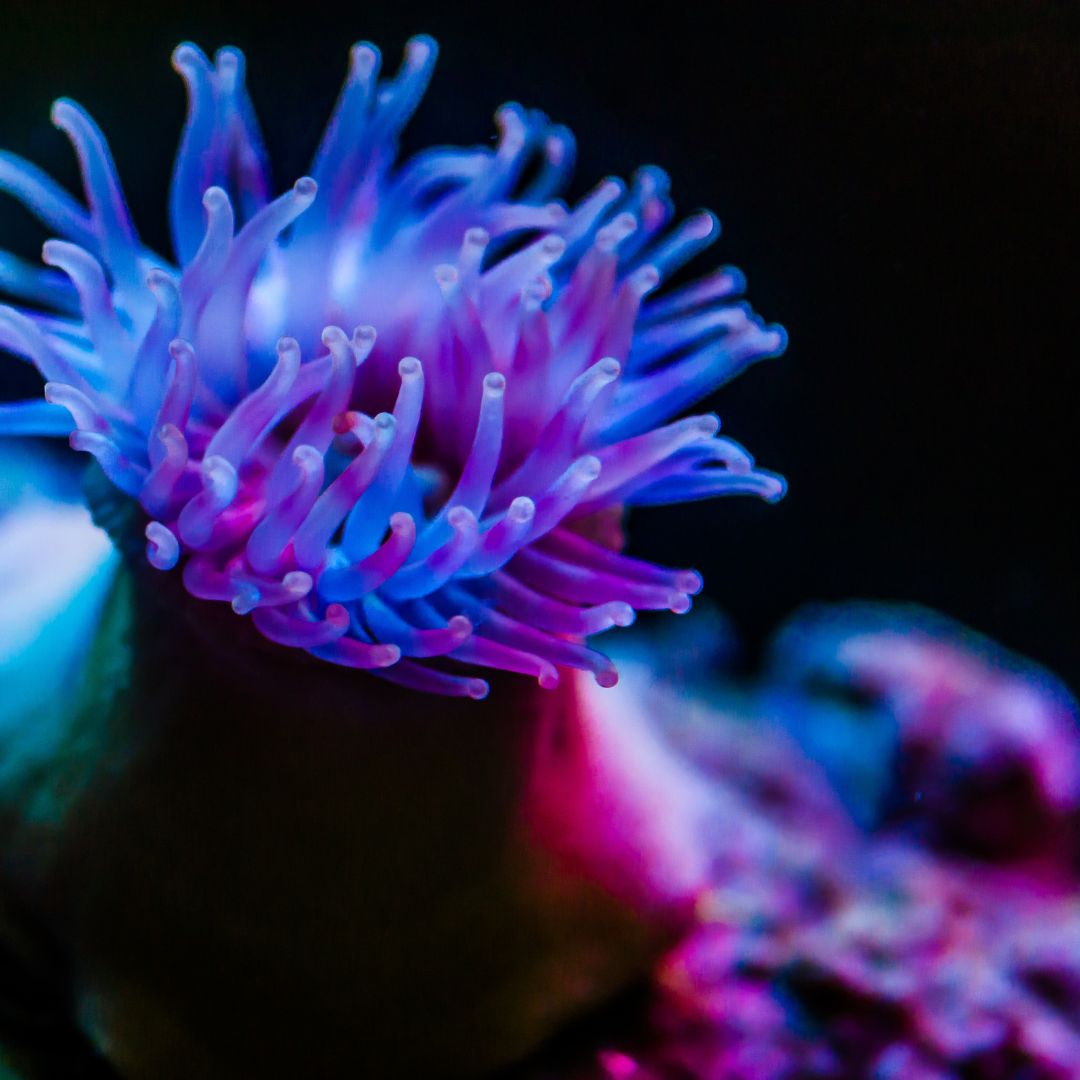
Anemone
Poetry Lady, in this heavy light you show tender: waving your insides outside, buffeted by the sea’s old heave ho. Nobody calls out medusa – but there’s a distinct...